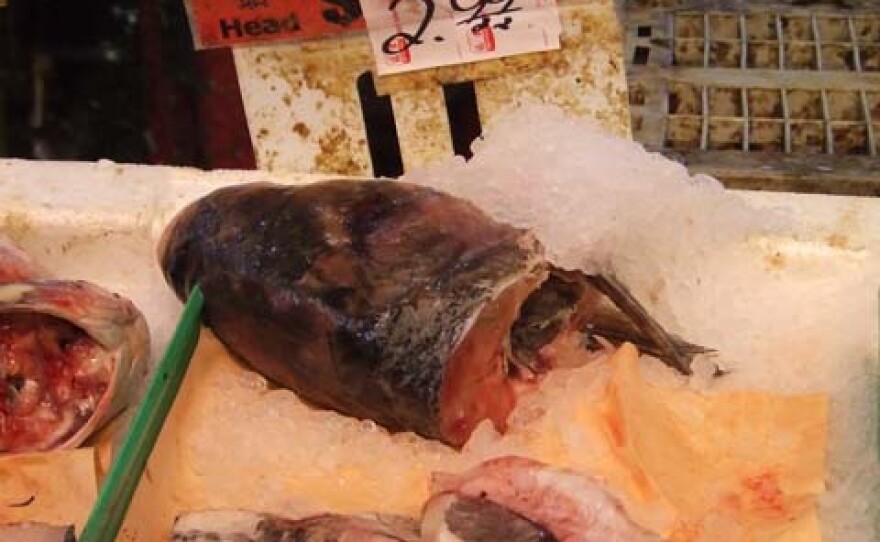State and federal agencies working to keep Asian carp out of the Great Lakes recently laid out their plans for 2011.
These agencies are focused mainly on the waterways around Chicago, where the fish could get in from the Mississippi River basin to Lake Michigan.
But there’s another route for Asian carp. They’re riding on trucks... that are bringing live carp from fish farms in the South.
Two fish distributors were issued large fines this winter for bringing live Asian carp into Canada. It’s illegal.
Peter Payette has been covering this story. Rebecca Williams talks with Peter on today's Environment Report:
Rebecca: Peter, you’ve just gotten back from some of these live fish markets in Toronto. What did you see?
Peter: All of these live fish markets were a part of an Asian grocery store and a couple of them had very large sections of the store devoted to fish, and in particular, live fish. I was in one store where they had a catfish that must've been 30 pounds. I saw a common carp that size... I saw an eel that was two or three feet long.
Rebecca: And you tried to get people to talk to you, right, and nobody wanted to talk to you?
Peter: There was not a lot of English being spoken in these stores. In a couple of places it did seem like they understood, a manager would come out who understood I was interested in talking about the sale of live fish and they had no interest in talking to me about that.
Rebecca: Okay, so what's the danger here, we're talking about live fish on trucks, going to fish markets, and presumably, being eaten. How would these fish get into the Great Lakes?
Peter: So I put that question to Peter Meisenheimer. He's the Executive Director of the Ontario Commercial Fisheries Association, and his answer to that was, if you have truck drivers cruising around with contraband and they think there's some danger, they're about to be inspected or pulled over, what do you think they'll do? They'll dump the carp in the nearest waterway. Here's the scenario he described:
"They come up to the first truck inspection station and the lights are up and they supposed to be inspected, you know? I can see the guy skipping by it, taking the first ramp down, finding the first bridge he can dump these things at, because he's not going to dump them in a ditch, somebody will find them, right?"
Peter: The thing about these Asian carp is that they're accustomed to living with very little oxygen. The environments they can live in are fairly stagnant, so I'm told that they can remain alive for a number of hours. I read in one report up to 48 hours out of the water. So these fish distributors are actually bringing carp across that appear dead, but they're hoping to revive them when they're over the border.
Peter Payette is a frequent contributor to The Environment Report.






